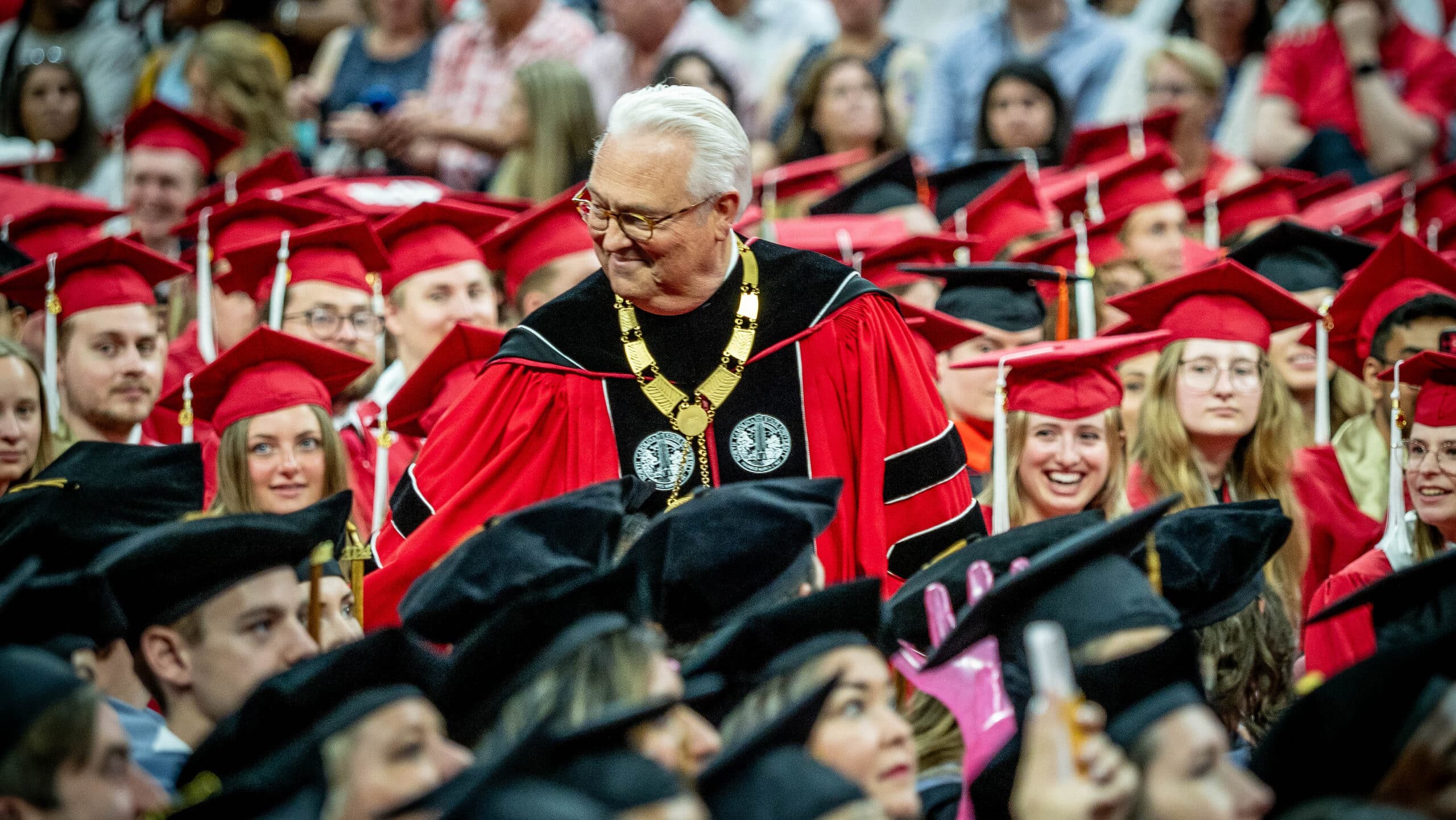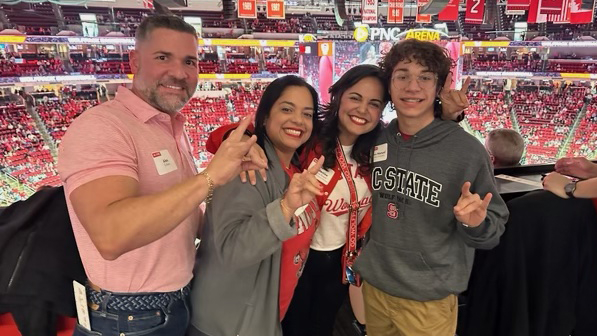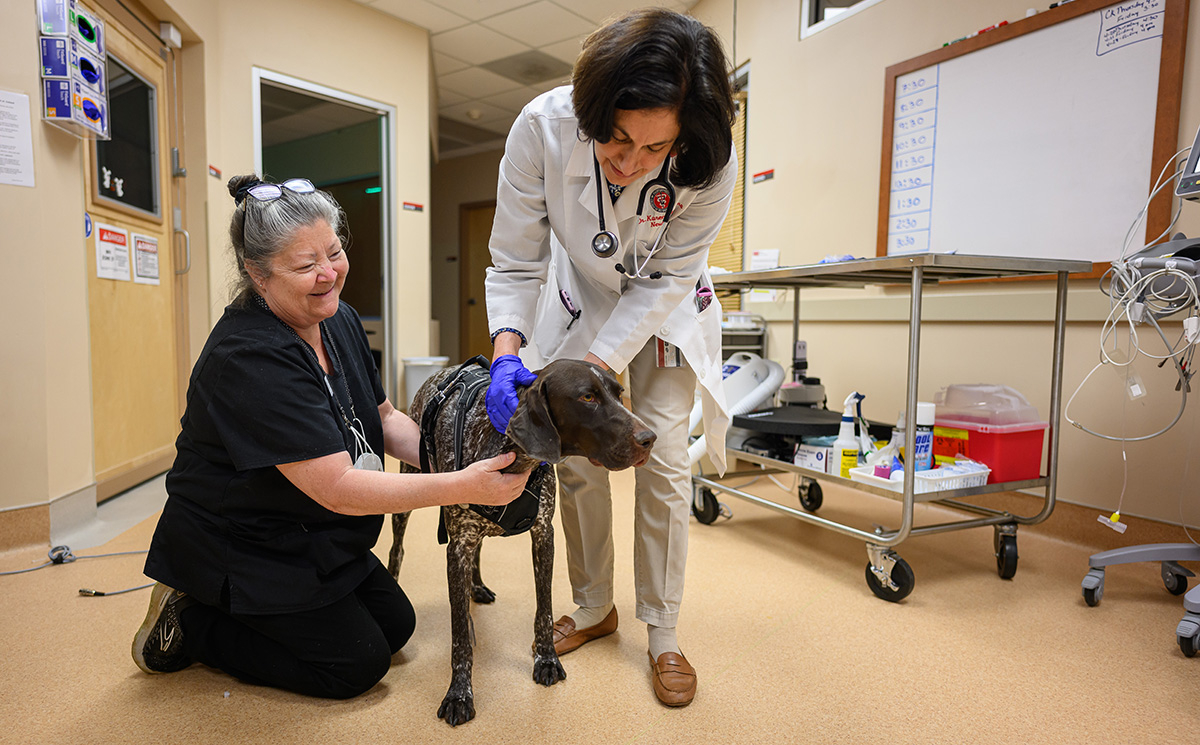Breaking Barriers
Student advocacy and the expansion of institutional resources underpin the university’s disability services, which help to ensure every student can access the NC State experience.
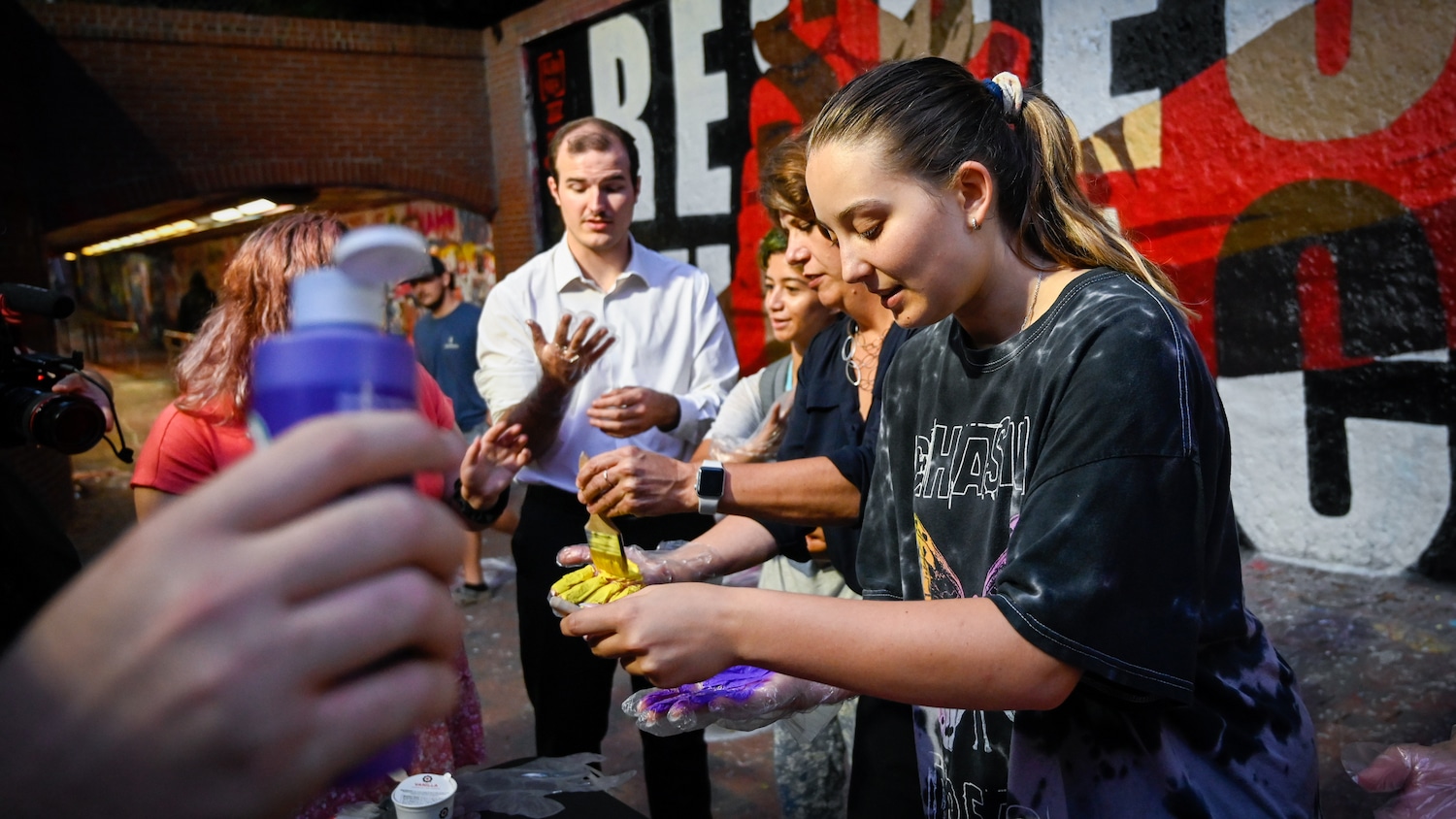
NC State has gradually expanded its services for students with disabilities since the 1920s; today, there are countless opportunities for every student to receive the support needed to thrive on campus. As International Day of Persons with Disabilities approaches, we invite you to reflect on the history of disability support and advocacy across our campus.
Join us in exploring the pivotal moments, initiatives and advocacy efforts that have made our campus a more inclusive and accessible environment — and learn how our community continues to break barriers.
Historical Milestones
The first record of students with disabilities at NC State are rehabilitation soldiers — roughly 200 veterans returning from military service that were enrolled in the university’s rehabilitation program from 1919 to 1925. Each student specialized in a branch of study within agriculture “in which his particular disability will least interfere with his success.” The rehabilitation program centered on vocational training, equipping young veterans with valuable skills for their post-service endeavors.
By 1948, the university broadened its support for disabled veterans and established a housing office to provide accommodations for soldiers returning from military service in World War II.
In response to the Rehabilitation Act of 1973, NC State secured federal funding aimed at enhancing campus accessibility for individuals relying on mobility aids such as wheelchairs. NC State was allotted an average of $38,570 from 1973 to 1983 to provide equal access to people with disabilities through the removal of architectural and transportation barriers on campus.
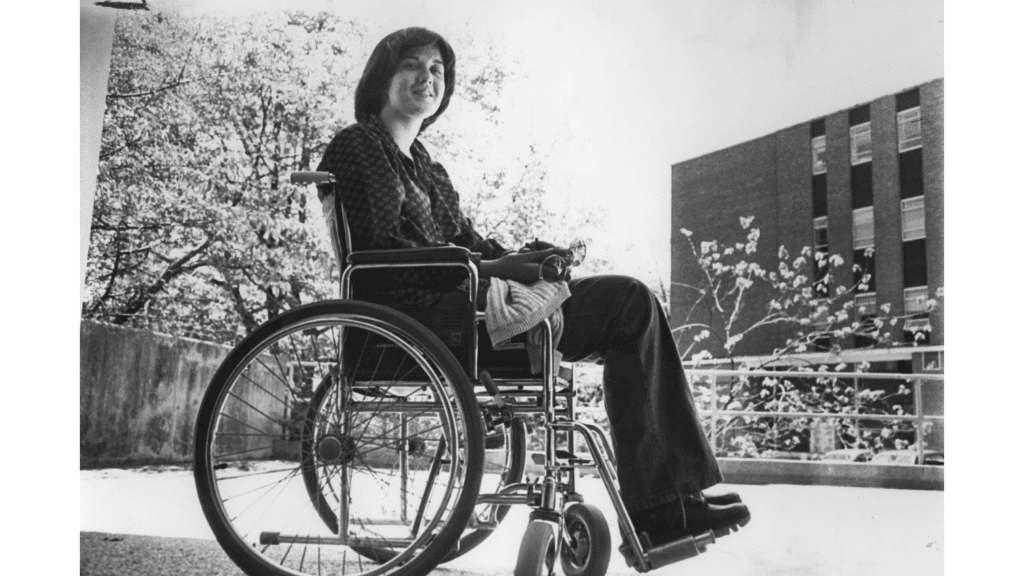
In the 1980s, university leaders and student disability advocacy groups called for the establishment of a service center specifically designed to support students with physical and mental disabilities. Based on community feedback, the university established the Ad Hoc Committee on Handicaps, which convened in 1981 to discuss the need for a campus-based service center dedicated to addressing the accessibility challenges faced by students.
Responding to these concerns, NC State took a significant step in 1984 by appointing Emily McGowan as a part-time learning disability director, tasked with conducting educational assessments and delivering academic support to students with intellectual and mental disabilities. The following year saw the formal establishment of the Student Handicapped Services Office, known today as the Disability Resource Office (DRO).
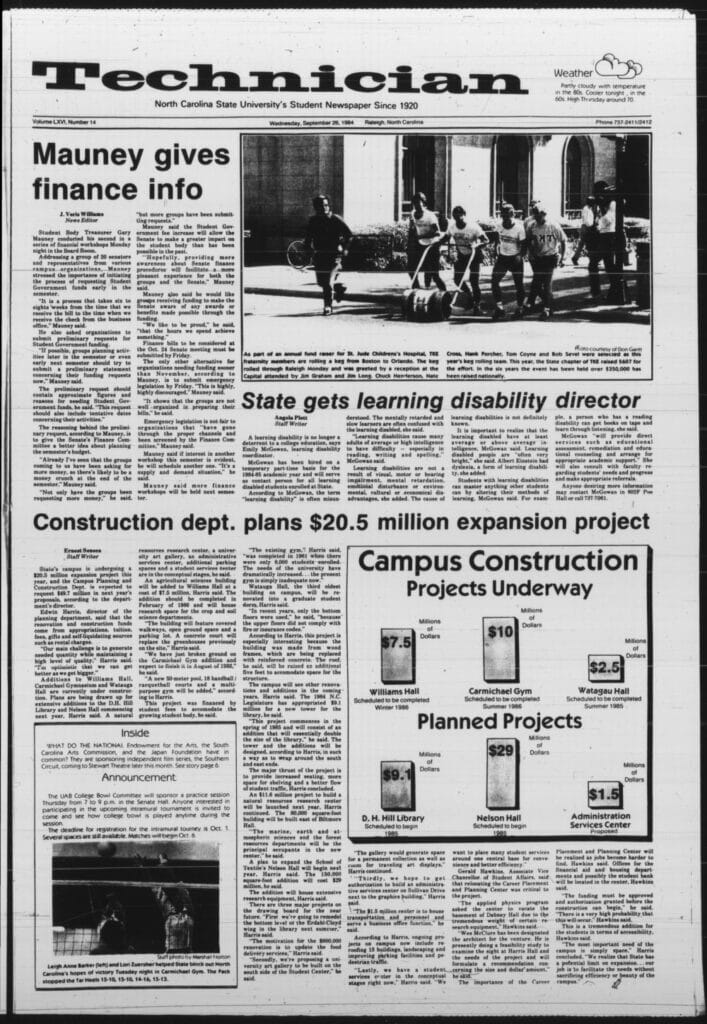
Fast forward to 1989, and the collaboration between two campus groups — the Handicapped Services Office and the Student Organization for the Differently Abled (SODA) — culminated in a peaceful demonstration at the Free Expression Tunnel. The rally shed light on the lack of accessible tunnels on campus. During the demonstration, students encountered a wheelchair obstacle course, designed to illustrate common barriers scattered across university grounds.
The protest at the Free Expression Tunnel garnered significant support: More than 1,200 students endorsed a petition urging the UNC Board of Governors to allocate funds to create a new accessible tunnel and to remove existing barriers. The culmination of these efforts materialized in 2006 when the university temporarily closed the Free Expression Tunnel for a comprehensive $2 million renovation. The result was a modernized tunnel, aligning with the standards set forth by the Americans with Disabilities Act (ADA) of 1990.
The university adopted several policies and regulations in support of disability services in the early 2000s, addressing broader initiatives of equal opportunity and affirmative action. Regulation 02.20.01, for example, provided academic accommodation for students with disabilities in accordance with federal law. Regulation 04.20.05 addressed the use of service animals on campus.
Providing the NC State Experience
The landscape of disability services and support at NC State has undergone remarkable changes since the rehabilitation soldiers called campus home in the 1920s. A notable change comes from the DRO, the office dedicated to determining appropriate accommodations for students with a disability, and its annual reporting of students using their services. In 2007, the office assisted 614 students. By 2015, that number rose to 987, marking a 60% increase in eight years.
As the current director of the DRO, Mark Newmiller sets the tone of the team and the outreach across campus. The DRO often provides resources and education to instructors on how to implement aspects of universal design into their classrooms and create inclusive practices.
From leading trainings for academic departments to supporting a student’s interest in studying abroad, Newmiller and his team continually find ways to ensure students get the most out of their time on campus.
“We still have a long way to go, but we have made a lot of big strides, especially in the last 10 years,” says Newmiller.
“As students with disabilities, we’ve worked hard to open doors for ourselves. We don’t want to let them close behind us.”
During the 2010s, university initiatives such as Wolfpack Pick Up and Students Moving Forward also emerged.
Wolfpack Pick Up was created by students in collaboration with university officials to aid students with physical impairments in navigating the expansive campus. Students Moving Forward is a career-focused program originally created by two NC State staff members and designed for students to develop career readiness competencies and connect with employers who value neurodiversity.
Building on this momentum, the Pack disAbility Advocacy Club (PAAC) was formed by students in 2023. PAAC fosters community and advocacy and addresses both visible and invisible ability diversities, including mental health.
Collectively, these endeavors reflect the university’s commitment to embracing a more diverse and inclusive campus environment.
“As students with disabilities, we’ve worked hard to open doors for ourselves,” say Marissa Farkas and Vidisha Ganesh, co-presidents of PAAC. “We don’t want to let them close behind us.”
They add, “We want other students to have the opportunity to drive their educational and career success and to have the NC State college experience.”
Accessibility Beyond Today
While NC State has made great strides in the disability services available to students, university leaders continue working toward a more accessible campus for all.
This year, Chancellor Randy Woodson and the NC State Board of Trustees unveiled the university’s new physical master plan, “Framing the Future,” which will guide the university’s growth over the next decade. More than 3,000 students, faculty, staff, alumni and community members provided input to the plan across a two-year period and helped craft a set of guiding principles for future development.
One such principle is to embody positive social impacts for the current generation and every future one, particularly through universal design. Universal design ensures that every person who visits our campus can fully utilize the spaces and places that they need to live and thrive at NC State, regardless of age or ability. Additions to campus include new pathways and ramps to provide greater access to new buildings, campus hubs, greenways and Lake Raleigh.
With physical changes on the horizon, students and employees alike continue advocating for the institutional and social inclusivity to keep pace. Newmiller shares this vision for the campus community, one he’s helped pursue during his 20 year career with the DRO.
“There will always be a need for our office,” says Newmiller. “But if instructors can create an environment where students don’t have to come to our office, that’s better. I want students to, for example, be able to go to the Academic Success Center and get the support they need like every other student.
“My philosophy is that every student should have the NC State experience.”
